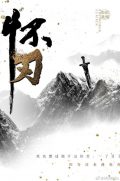44 Chapters Every 5.3 Day(s) 600 Readers 1 Reviews 06-13-2025
Ever since his youth, Qi Zhaoxi had been a wanderer of the Jianghu [1] , as well as a secret member of a demonic sect. Many years had passed, and given his skills, he would be completely capable of self-preservation as long as he tried. Yet, even before reaching 30 years of age, he wanted nothing other than to retire and go into seclusion.
... more>>
But that changed the very day he met Jiang Li.
“Within the Jianghu, battles ensue between sects, while the blades of good and evil collide. No places exist for humans to drink in peace, while places abound for bones to be laid to rest in peace. Fame is born from nothing but aggression and ambition, while grudges borne in gratitude and love are merely born from rivers of selfish desire. I’ve seen enough scenery [2] to find that all mountains and rivers look the same. I’d even thought about tossing aside this mortal realm, and putting an end to it all.
That was because I hadn’t met you yet.”
—-
In short: Before embracing a blade, brace yourself for injury.
—-
Main Couple: A feigned master-disciple relationship.
Qi Zhaoxi (top; Jianghu ‘master’ who wants nothing but to retire) x Jiang Li (bottom; witty, cool and socially-isolated ‘disciple’)
1v1, happy ending.
——————————————————————
Translation notes for the summary in the existing fan translation:
[1] Jianghu literally means ‘rivers and lakes’, but could also be a figurative way to refer to people at the margins of society, usually martial artists, but also people of demonic sects/cults, artisans, and bandits. Much of the time, they travelled using the waterways (rivers and lakes), hence leading to the ‘Jianghu wanderer’ nickname.
[2] Just explaining the translation choice for “seen enough scenery”. The original was 看罢了 (看 = to see), so 看 in combination with 罢了 could be alternatively translated more directly as “I’ve finished seeing them” i.e., “I’ve seen them all”. However, the word 罢了 often carries an emotional meaning of boredom/mild contempt (Zhang, 2024), and I wanted to address this connotation since it is linked to QZX’s resignation towards life (a salient part of his characterisation). Hence, I chose this more liberal translation.
References:
张梓洁[Zhang Zijie] . (2024). 语气词“罢了”的情态意义探究[Regarding the affective meaning of the modal particle “罢了”] . 现代语言学[Modern Linguistics] , 12(1): 568-573. https://doi.org/10.12677/ML.2024.121080
<<less


